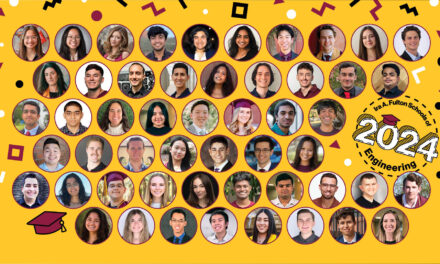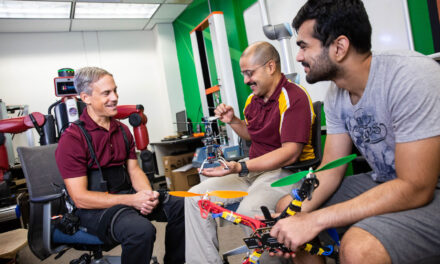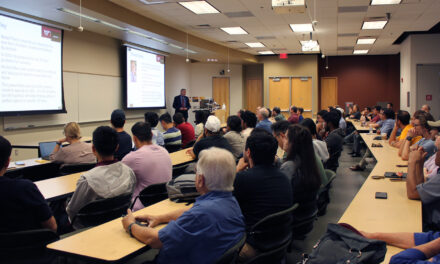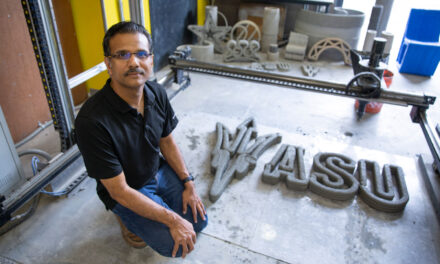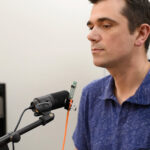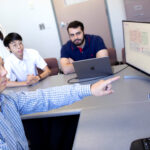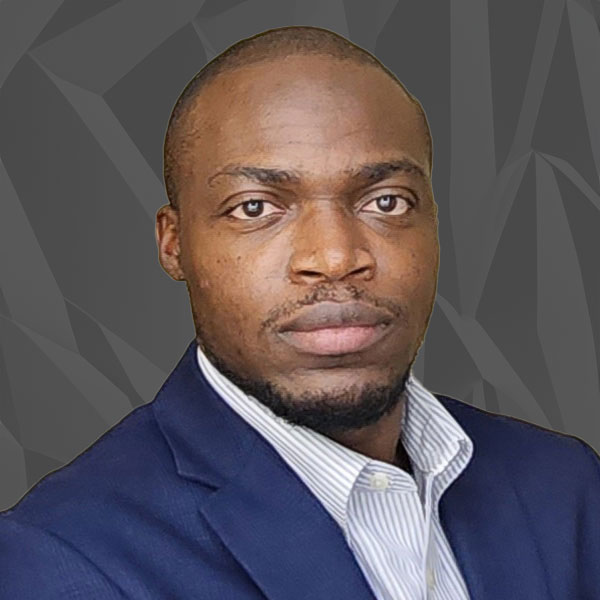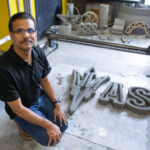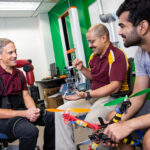
New Faculty Member, 2023–24
Emmanuel Salifu
Assistant Professor, civil, environmental and sustainable engineering
When Emmanuel Salifu was seven years old, he witnessed a devastating flood in central Nigeria where he lived with his family.
“This experience would eventually shape my career path,” Salifu says. “It made me realize the multidimensional aspect of problems and the challenges they pose to the people solving them, especially engineers.”
Salifu’s interest in developing climate-resilient, nature-based solutions to mitigate risks associated with soil systems in civil infrastructure and agriculture led him to become an assistant professor of biogeotechnics at the School of Sustainable Engineering and the Built Environment, part of the Ira A. Fulton Schools of Engineering.
Following the flood in his community, Salifu studied more about dams, floodwalls and embankments through books, television and documentaries. He also discovered the dangers of soil erosion, which is linked to food insecurity, landslides, gullies, water pollution and floods.
“I was surprised to learn that surface soil erosion could trigger the failure of some large earthen embankments leading to floods,” Salifu says.
Salifu completed a bachelor’s degree in an interdisciplinary program for agricultural and environmental engineering. He says this degree prepared him to solve real-world issues through engineering with a holistic view.
After his receiving his bachelor’s degree, he moved to the United Kingdom and earned a master’s degree from the University of Strathclyde, with a thesis in the emerging area of biogeotechnical engineering. Salifu earned a dual doctoral degree in civil and environmental engineering at the University of Strathclyde and structural, geotechnical and seismic risk engineering at the University of Naples Federico II for his research into ‘engineering fungi for soil improvement.’
Salifu focuses his research on geotechnical, agricultural, and environmental engineering and biotechnology. He is developing a range of bio-mediated technologies involving biochemicals and microorganisms. These technologies can be applied to solve issues in food insecurity, contaminated soil remediation, post-fire restoration, soil erosion, dust mitigation, anti-desertification and decarbonization of the built environment.
“I have since stayed in this area of research because it gives me a sense of purpose knowing that I am contributing towards solving wicked problems by engineering with nature,” Salifu says.
This year, Salifu will be teaching graduate and undergraduate courses in geotechnical and geoenvironmental engineering within the civil, environmental and sustainable engineering program. He says students will be challenged to think reflectively, creatively and critically to apply knowledge beyond the classroom and into real-world situations.
“I will create an active learning environment where learners will be adequately supported to take the lead in their own learning,” Salifu says.
Outside of work, Salifu enjoys playing the drums, chess and table tennis.
Meet the newest faculty members of the Fulton Schools of Engineering here.
Written by Bobbi Ramirez






